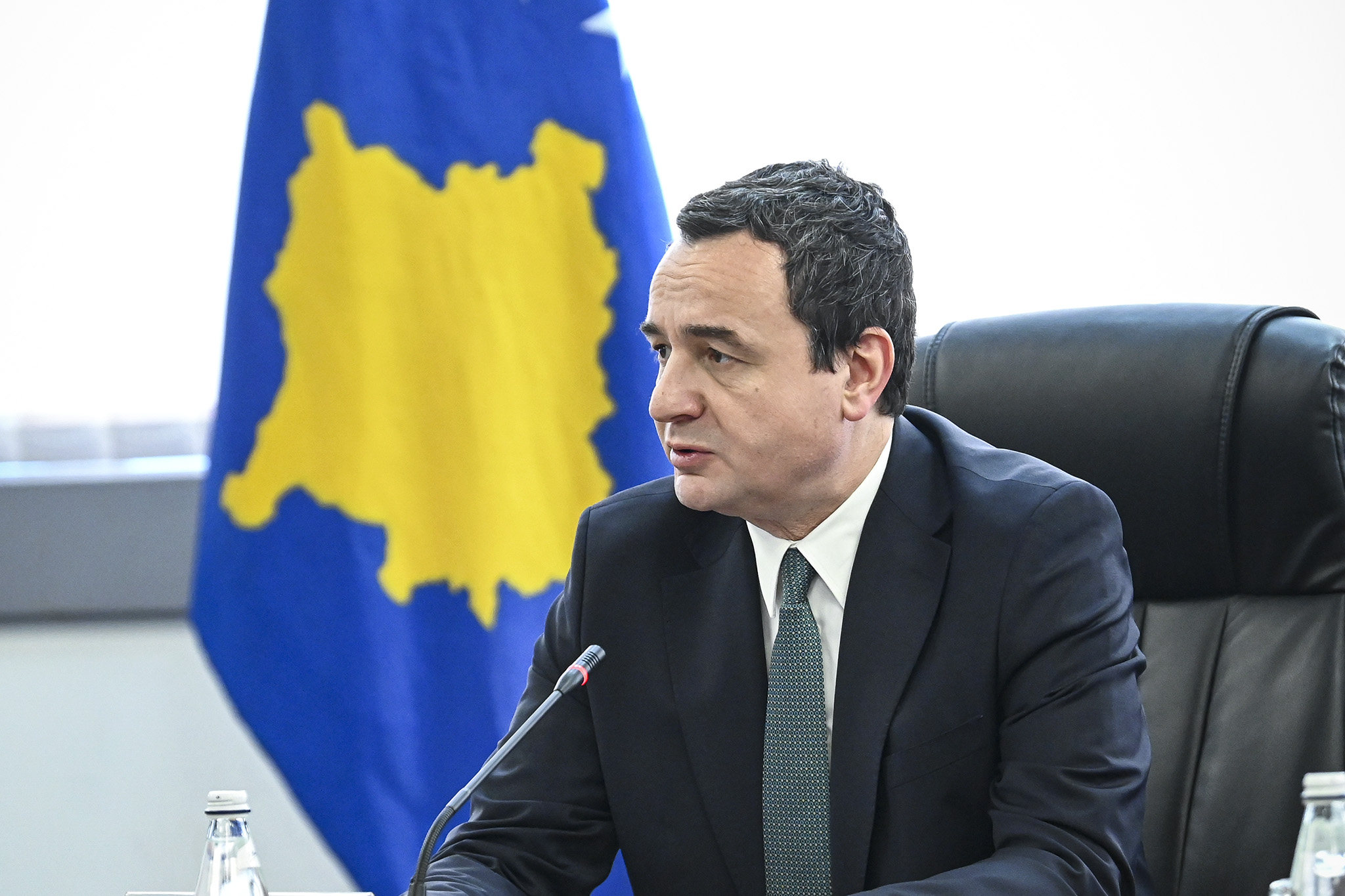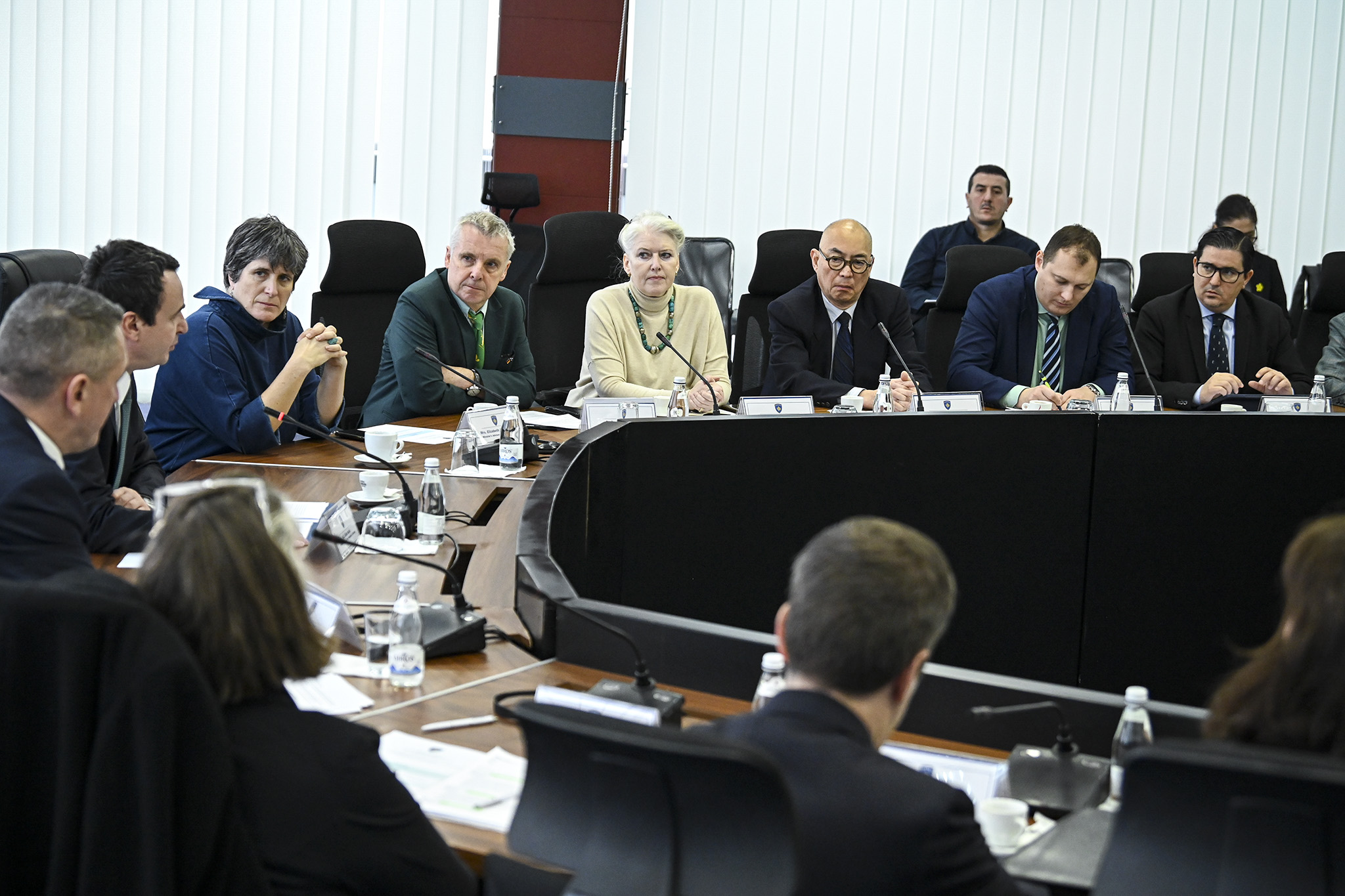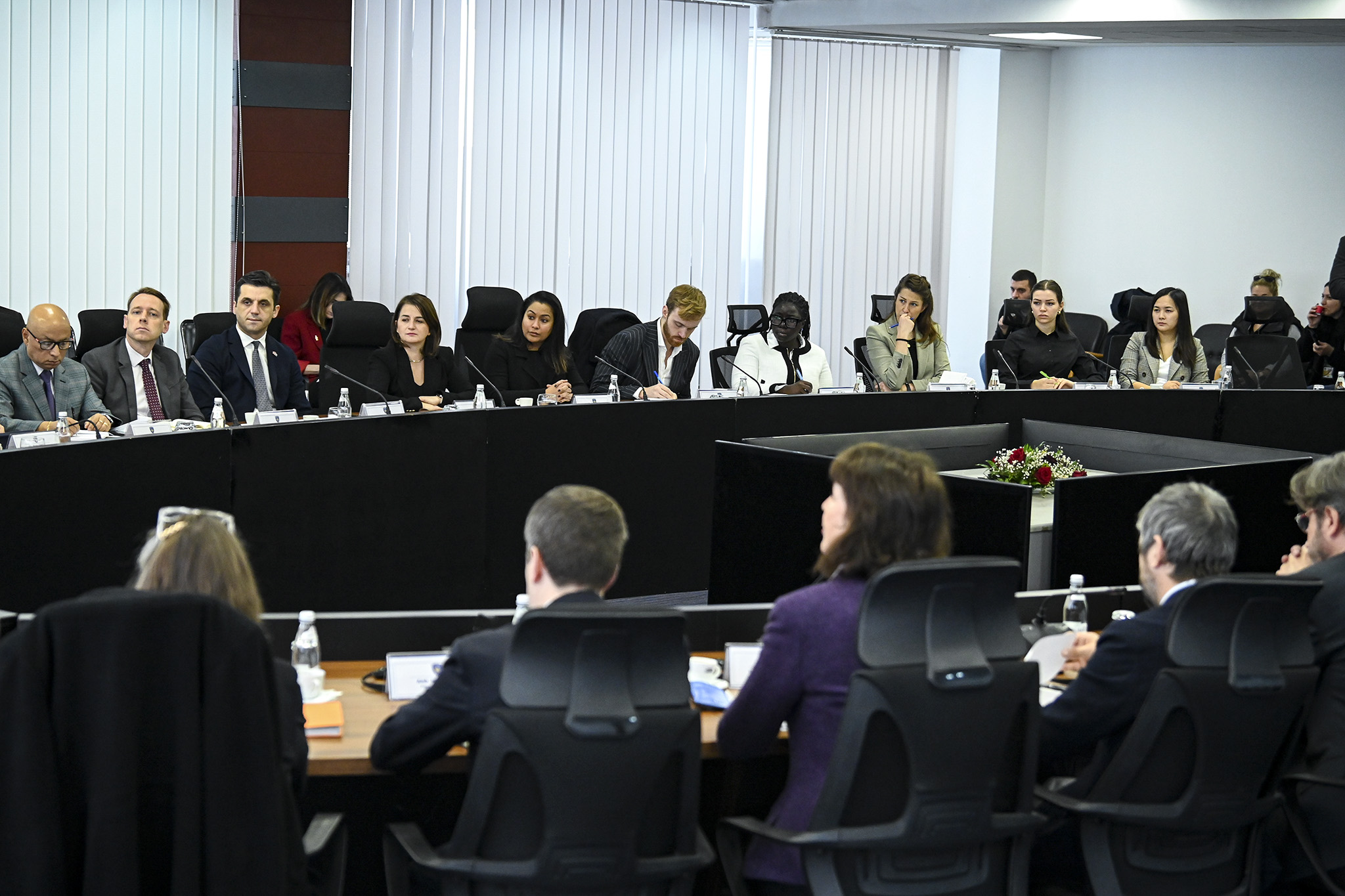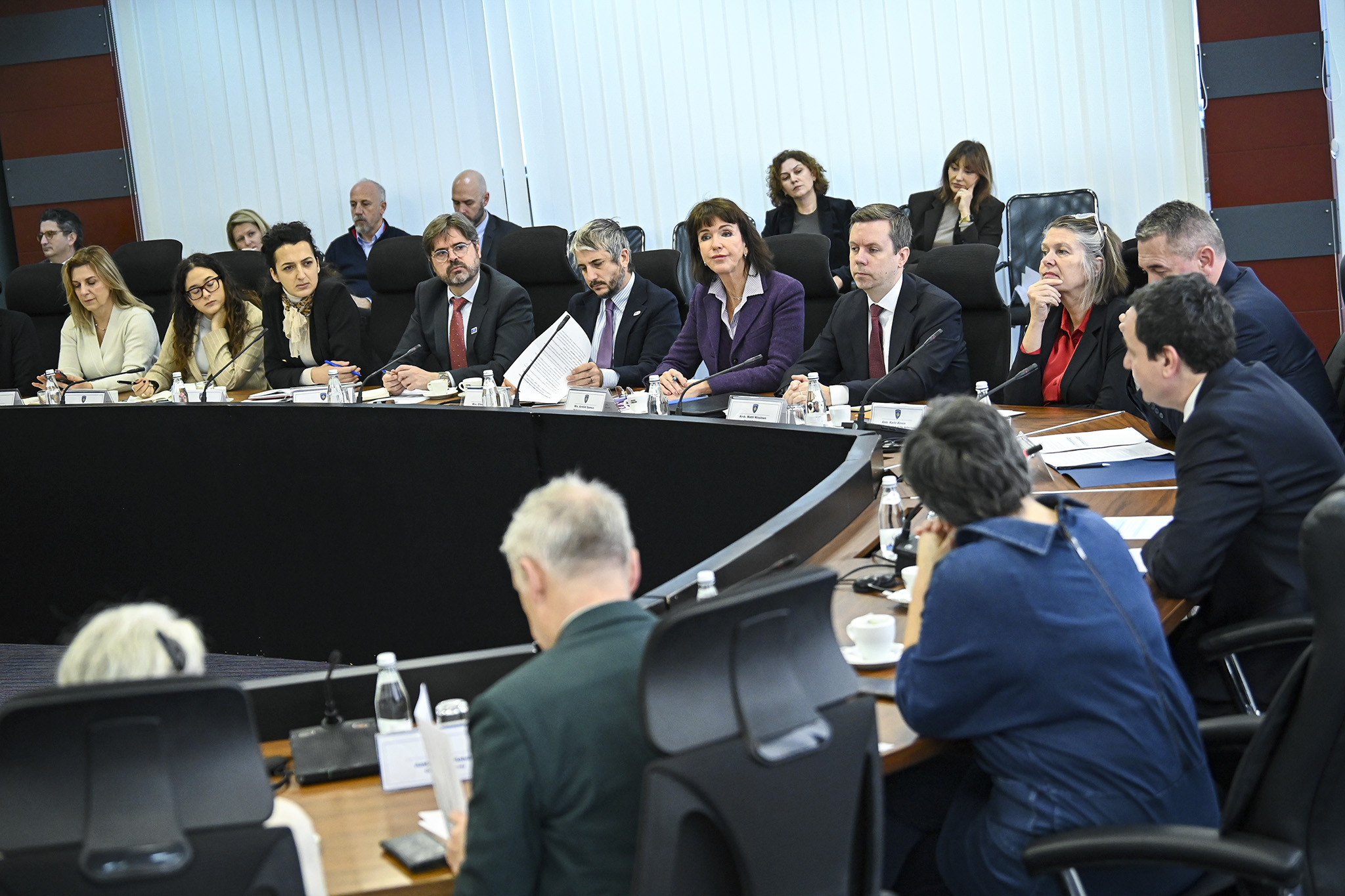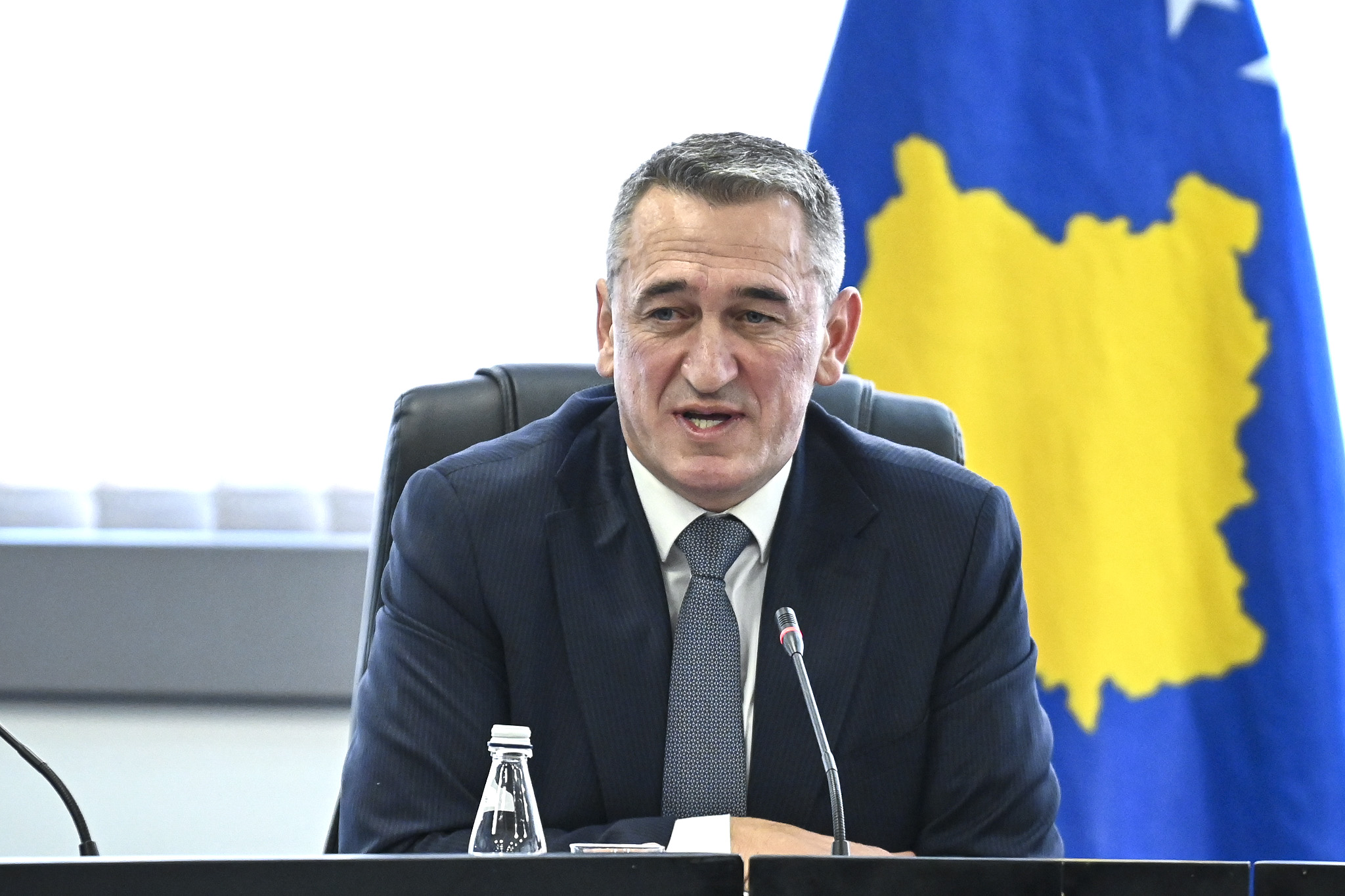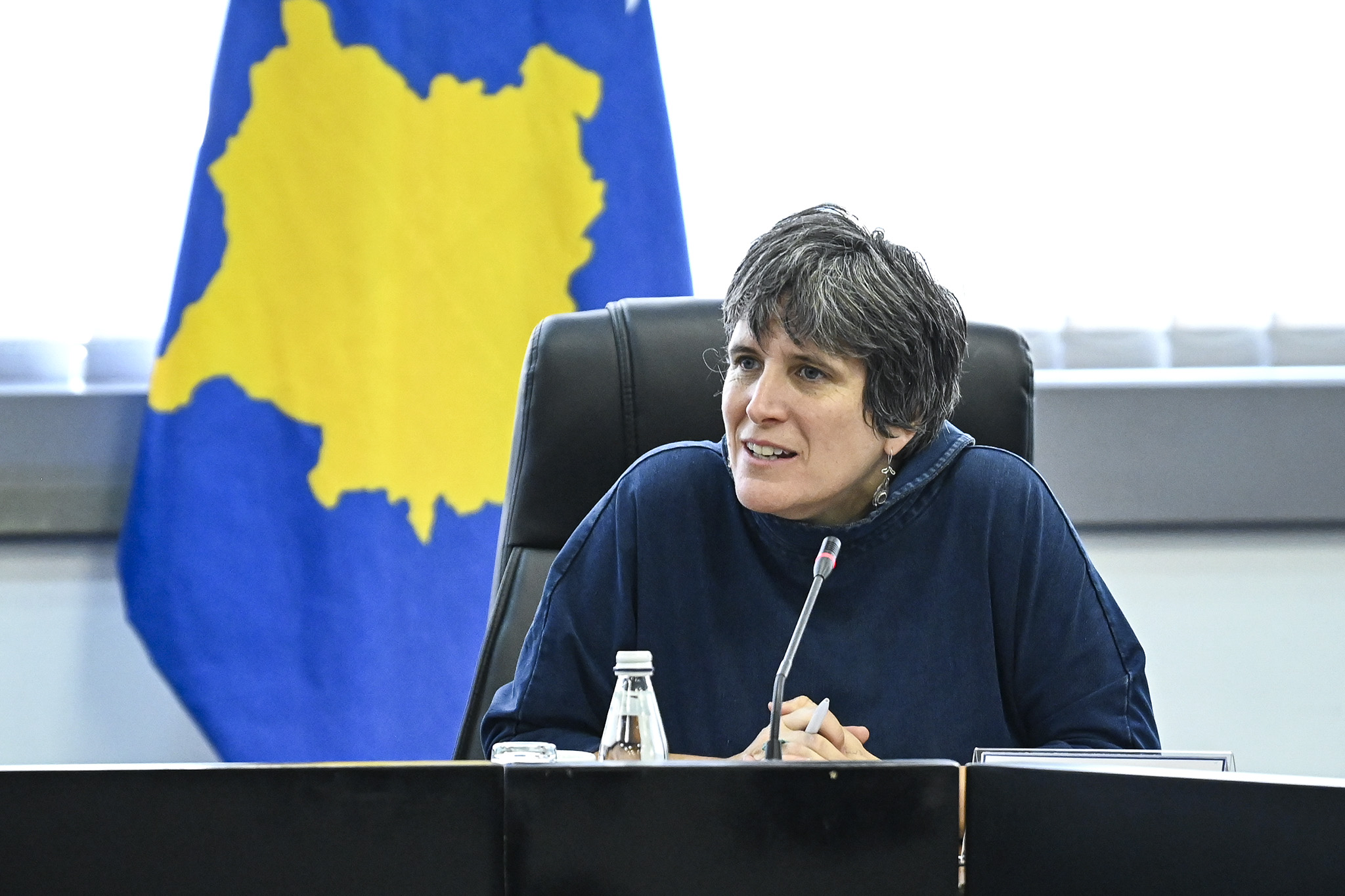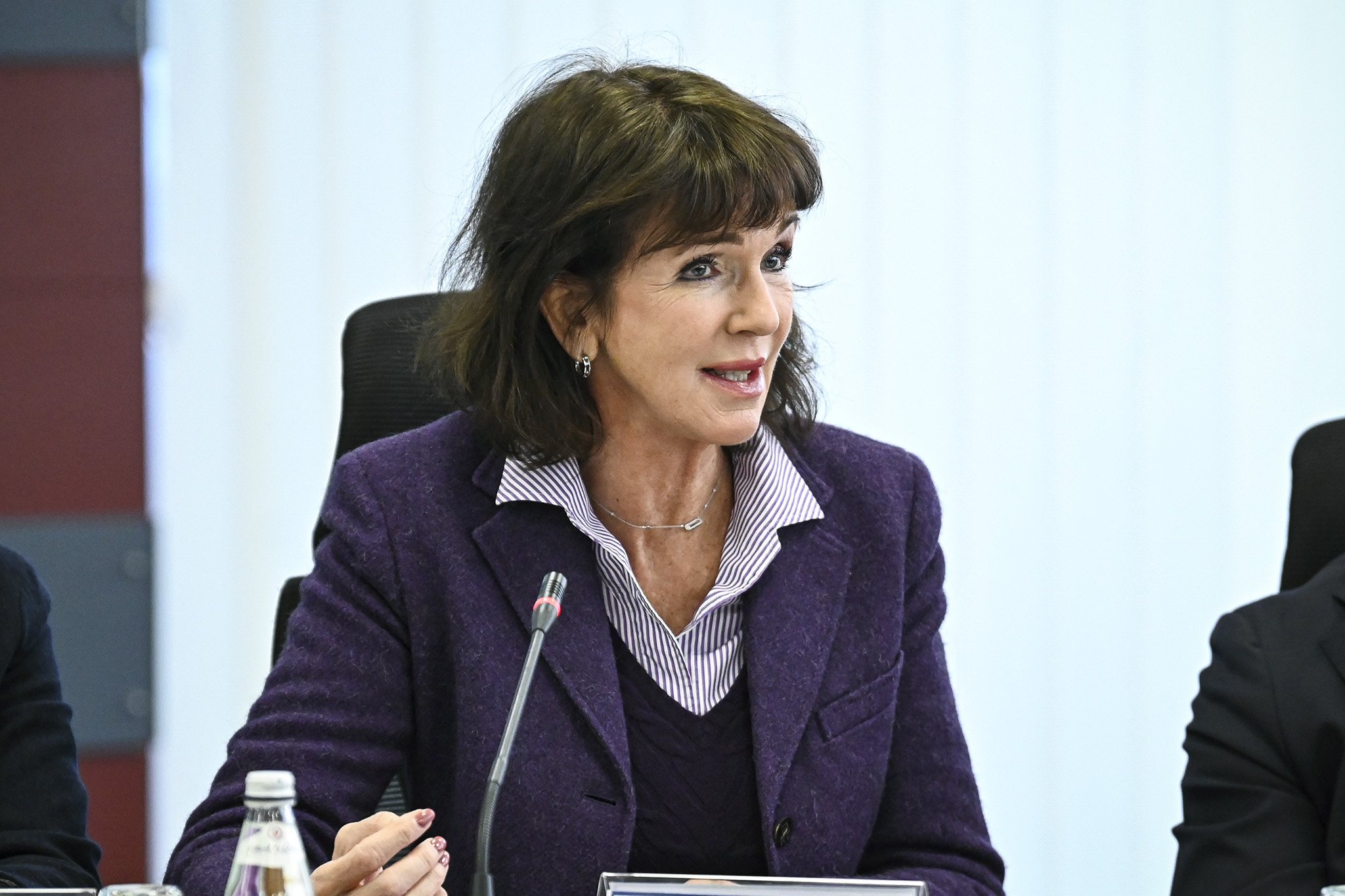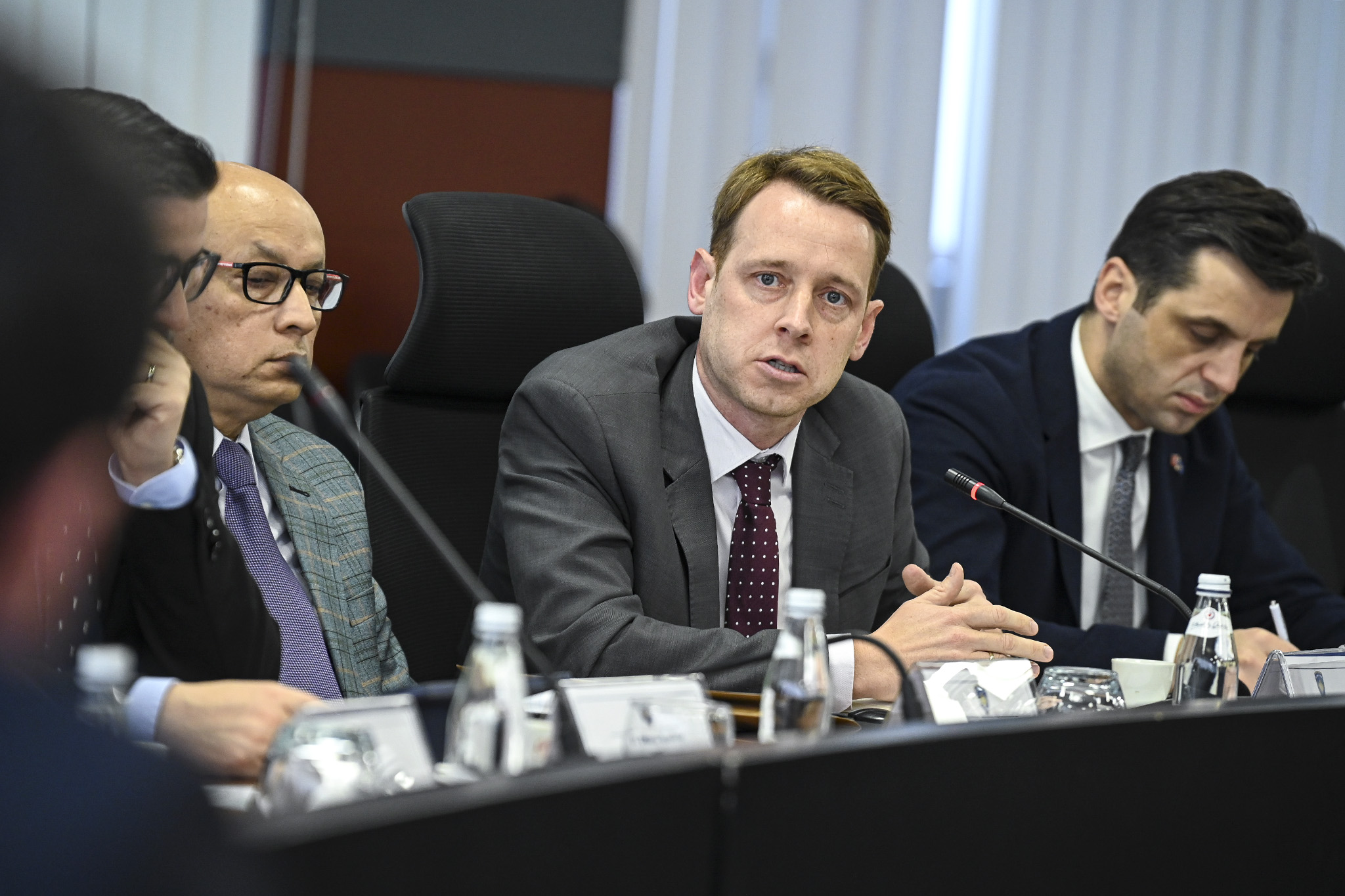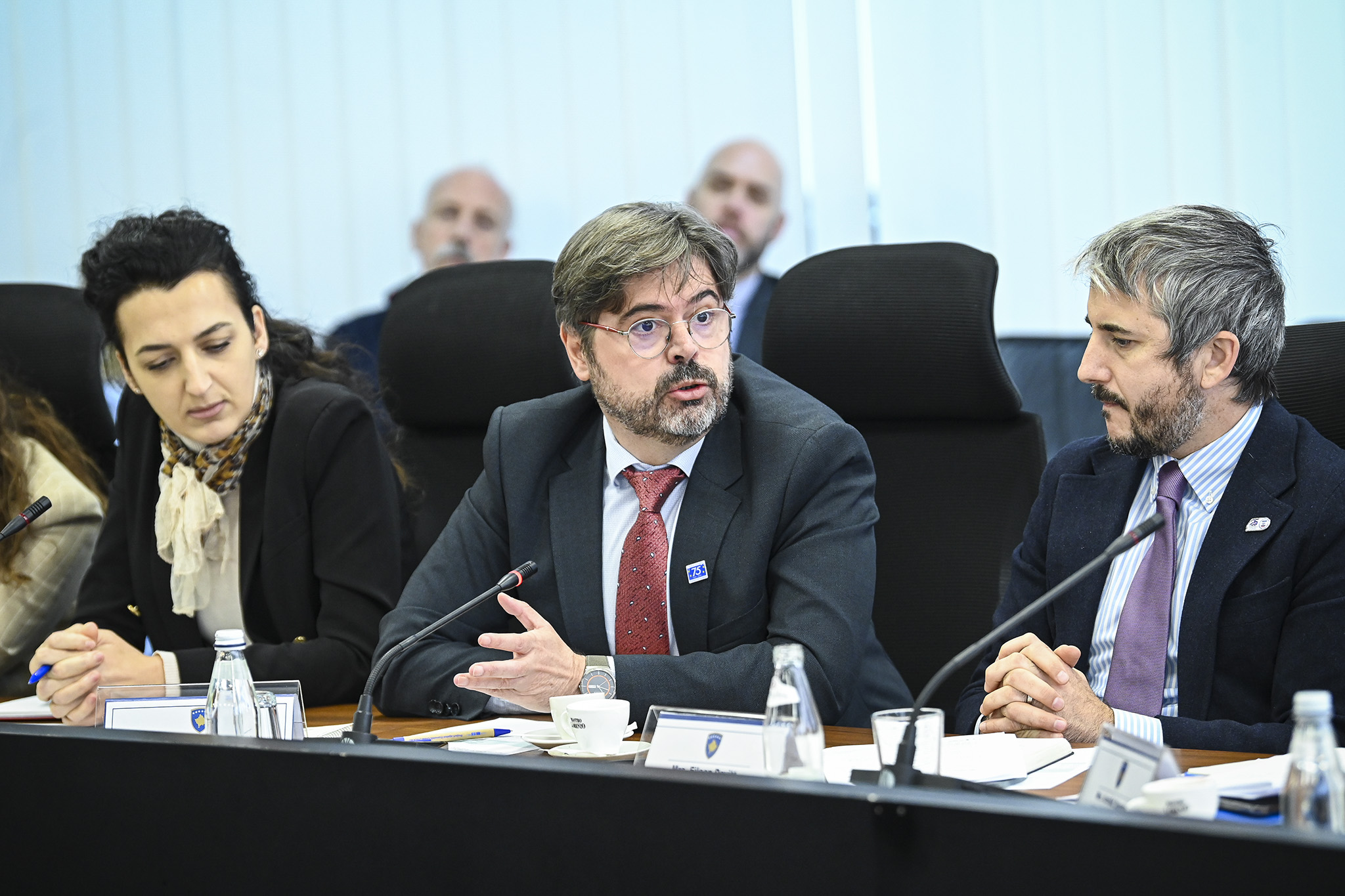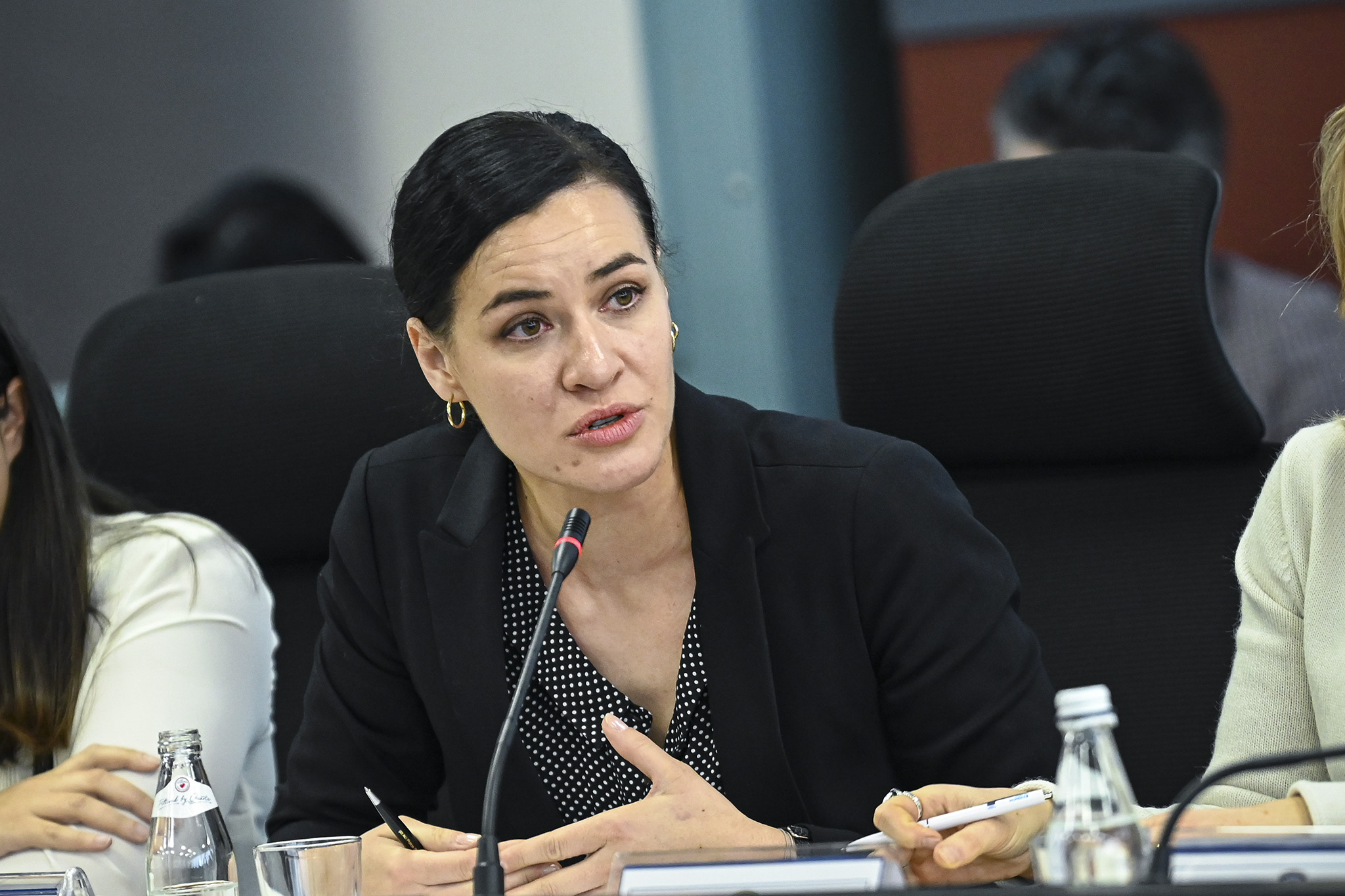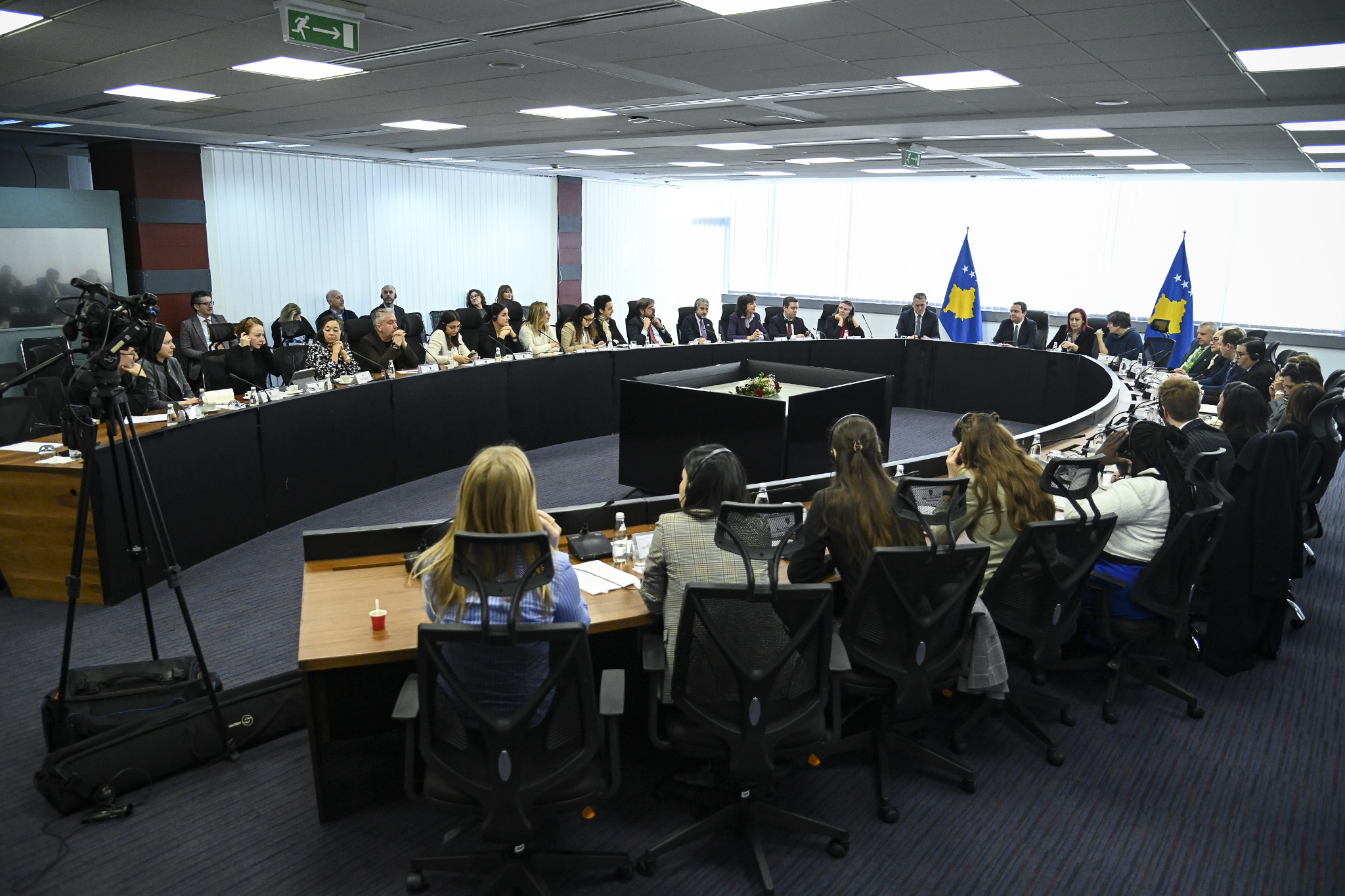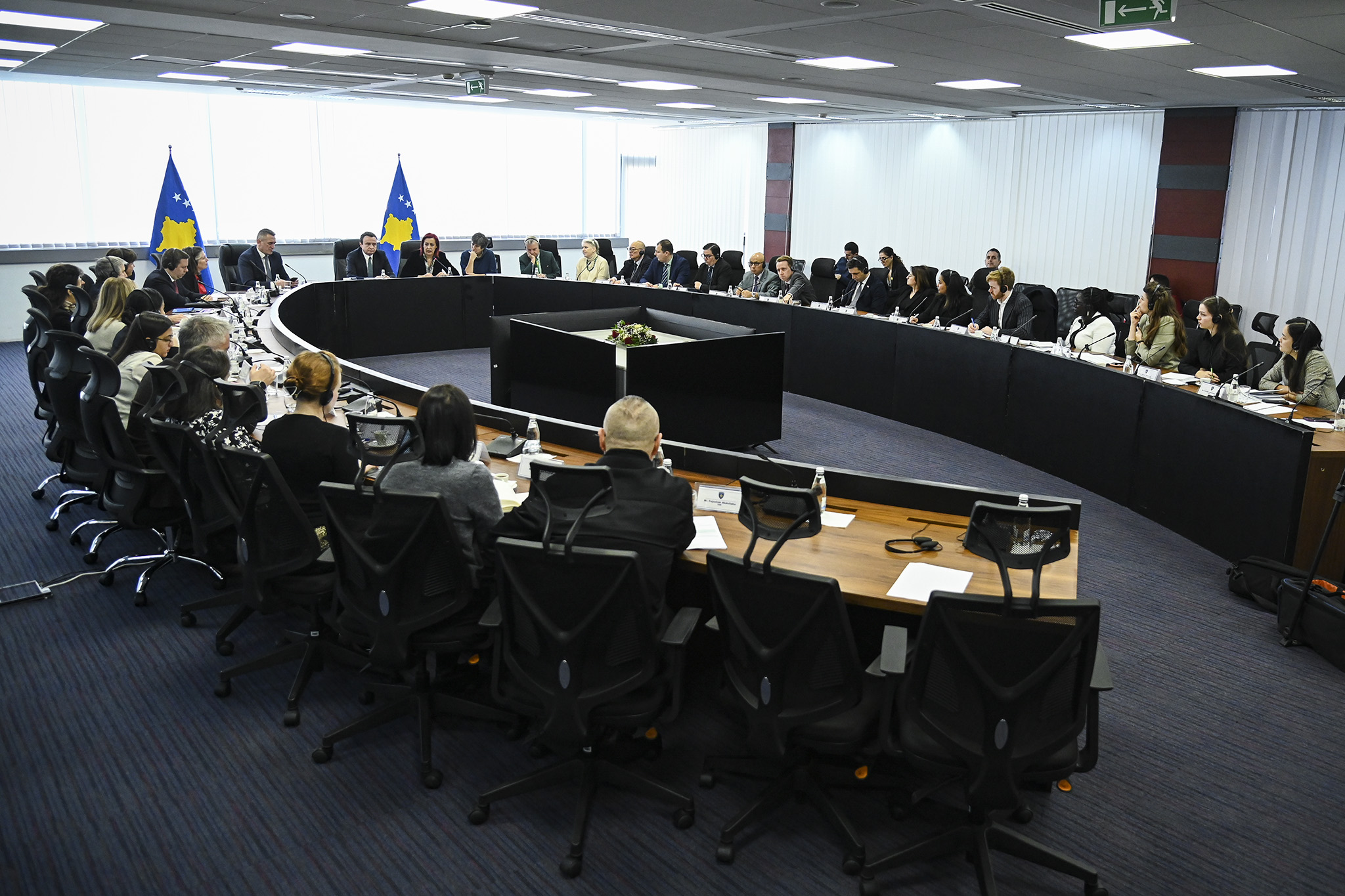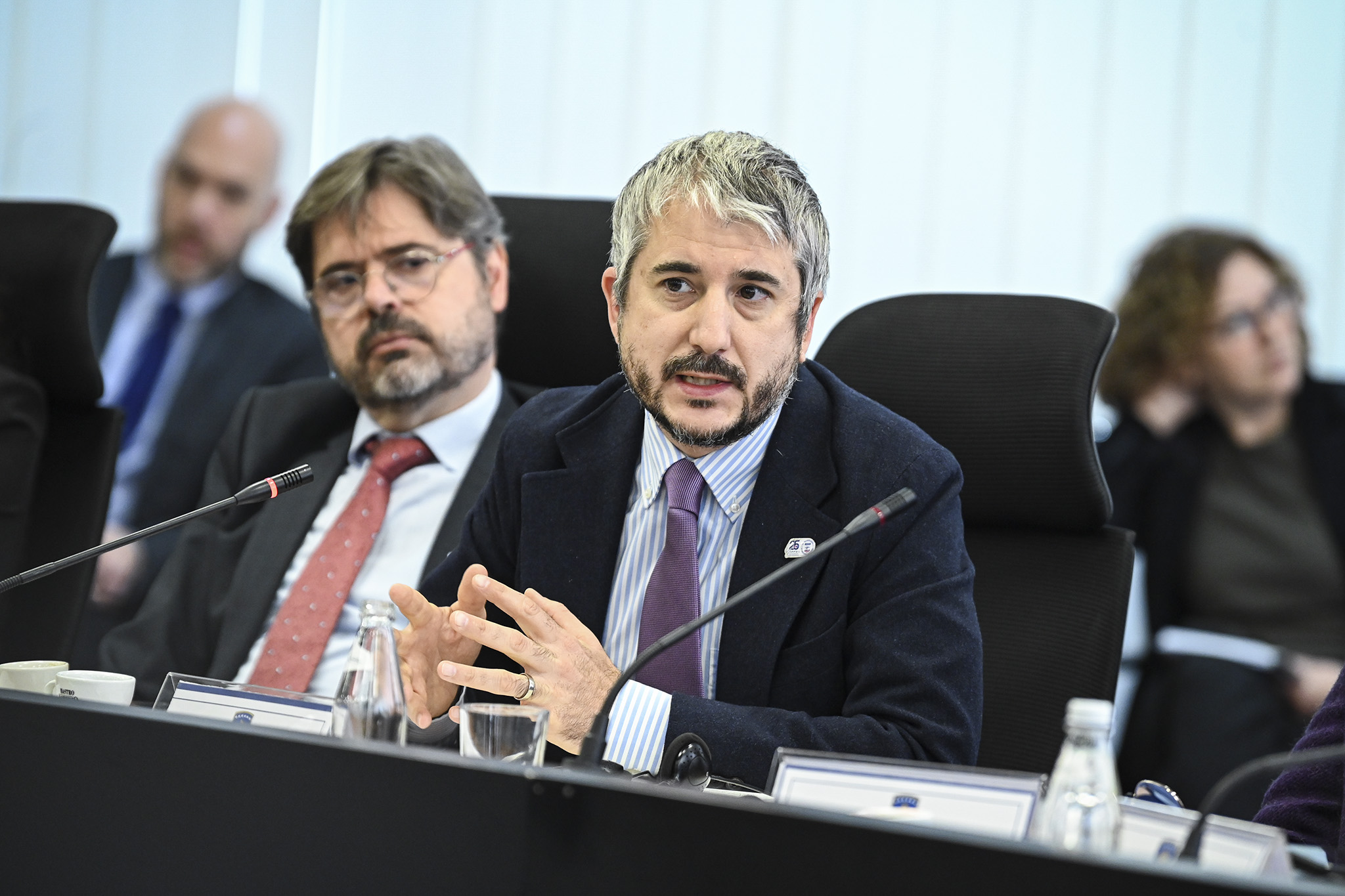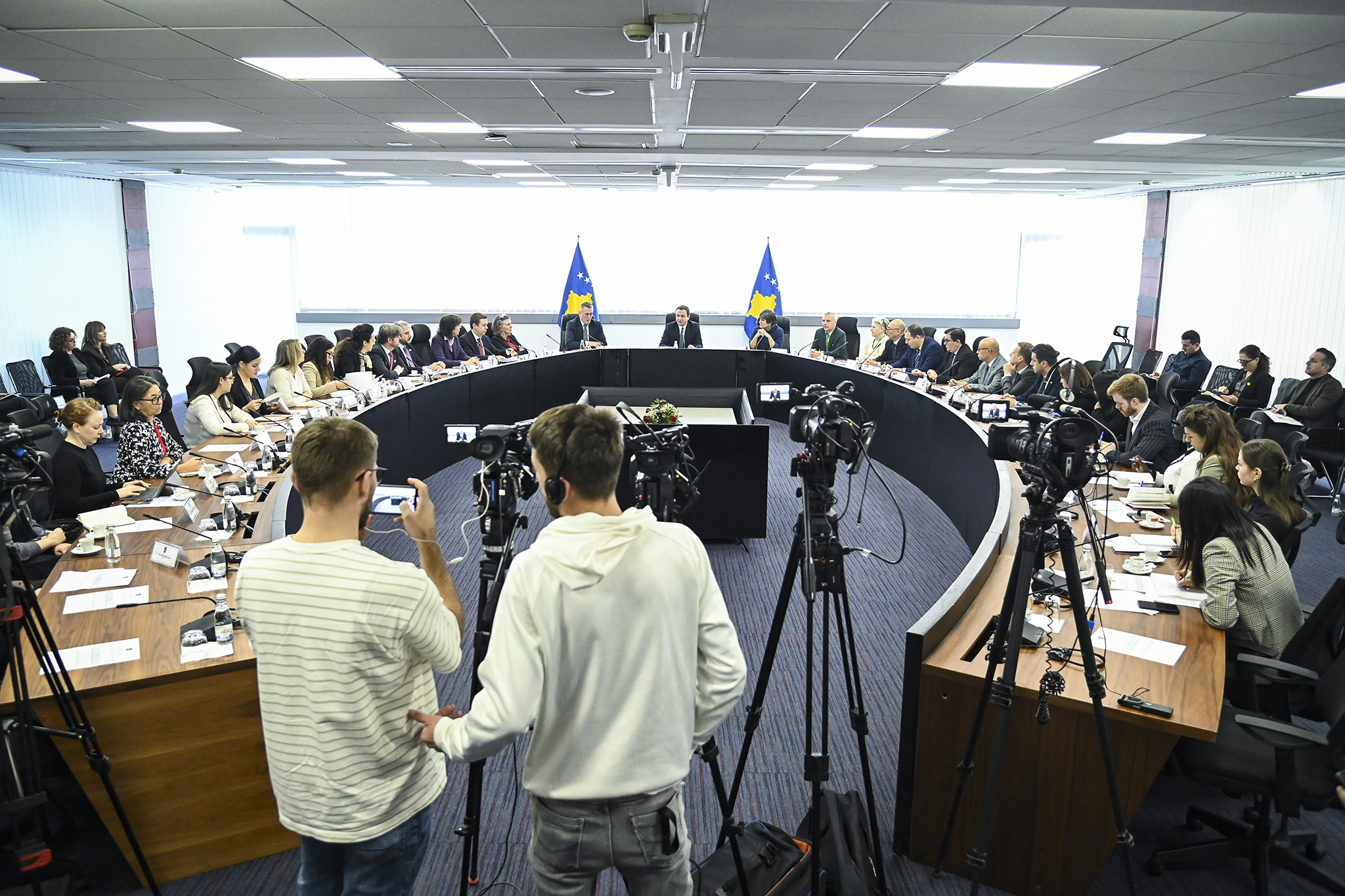Prishtinë, 17 dhjetor 2024
Sot, Kryeministri i Republikës së Kosovës, Albin Kurti, mori pjesë në tryezën e diskutimit me partnerët ndërkombëtarë për fuqizimin ekonomik të grave nga komunitetet joshumicë, të organizuar nga Zyra e Kryeministrit.
Ky ishte takimi i katër radhazi i kësaj natyre dhe kryeministri Kurti theksoi se kjo është Qeveria e parë që ka ftuar partnerët në këtë format, me qëllim për të përmirësuar koordinimin dhe për të identifikuar prioritetet tona të përbashkëta. Çështja e trajtuar në këtë takim ishin sfidat e veçanta dhe urgjenca e fuqizimit ekonomik të grave të komuniteteve joshumicë në vendin tonë, temë e cila u konsiderua e rëndësishme nga të dyja palët.
Disa nga sfidat e përmendura nga kryeministri gjatë këtij takimi, ishin niveli i ulët i pronësisë dhe trashëgimisë për të gjitha gratë në Kosovë, niveli i ulët i statusit socio-ekonomik të familjeve, përgjegjësitë më të mëdha të kujdesit të grave në krahasim me burrat, si dhe përqindja e lartë e të gjitha grave që punojnë në tregun e punës joformal.
Mirëpo, pavarësisht sfidave, kryeministri u shpreh se situata po përmirësohet në bazë të arritjeve të bëra gjatë qeverisjes.
“Për të adresuar çështjet e mungesës së kapitalit të grave, ne kemi nxitur me sukses regjistrimin e pronës në emër të burrit dhe gruas dhe kemi kushtuar një total prej 11 milionë euro që nga viti 2021 për të mbështetur gratë sipërmarrëse për të hapur bizneset e tyre, duke ndihmuar rreth 650 ndërmarrjet në pronësi të grave”, deklaroi ai.
Në këtë kontekst, u veçua edhe fakti që 100 mijë gra kanë hapur llogari bankare për herë të parë, të nxitura pjesërisht përmes skemës për pagesat për gratë lehona, ndërkaq 55% e të punësuarve përmes programit “Qeveria për Familjet” janë gra dhe 51% e përfituesve nga platforma Superpuna janë gra.
“Me këtë qasje, ne kemi arritur një rënie të papunësisë më të madhe për gratë sesa për burrat: papunësia për gratë u ulë nga 30% në 17% kur krahasojmë tremujorin e parë të 2021-ës, në fillim të qeverisë sonë, me tremujorin e fundit të 2023-ës”.
Për mundësitë ndaj komuniteteve joshumicë, kryeministri Kurti foli edhe për disa iniciativa specifike, sikurse procesi i verifikimit të diplomave të universitetit, për t’iu mundësuar pjesëtarëve të komunitetit joshumicë serb që kanë studiuar në universitetin në Mitrovicën e Veriut, të aplikojnë për punë në institucionet e Kosovës. Në anën tjetër shtoi se janë dhënë 884 bursa për studime të shkollës së mesme gjatë dy viteve të fundit për nxënësit nga radhët e komuniteteve joshumicë rom, ashkali dhe egjiptian dhe prej tyre, 51% të përfitueseve kanë qenë vajzat, ndërkaq vitin e kaluar janë dhuruar 55 bursa për studentët nga këto komunitete që ndjekin studimet në universitetet publike, dhe 64% e përfituesve kanë qenë vajza.
Në fund, kryeministri i falënderoi të gjithë partnerët për kontributin e tyre, duke besuar se në takimin e radhës do të mund të vënë në pah zhvillimet specifike në adresimin e të gjithë faktorëve kufizues që zvogëlojnë shanset e grave të komuniteteve pakicë për të kontribuar me aftësitë e tyre në ekonominë e Kosovës dhe jetën e tyre.
Fjala e plotë e kryeministrit Kurti:
Your excellencies, ambassadors and heads of missions,
Minister Rašić,
Ladies and gentlemen,
This is the fourth time we’ve come together in this series of meetings for Kosova’s international partners focused specifically on non-majority communities. I believe we are the first government who has invited our partners to come together with us in this way, to improve our co-ordination and identify our shared priorities.
After our first meeting with you, we’ve taken each time a different focus within the issues facing non-majority communities. Today from looking around the room at what is I think a record number of participants, I see that the issue we have chosen to address is one that you also see the importance of.
We’re here to talk together about the particular challenges and urgency of the economic empowerment of non-majority women in our country. We know that intersectional issues make it particularly difficult to address the situation of the many, many women from minority communities who are living in poverty in Kosova.
As Kimberlé Williams Crenshaw, who coined the term ‘intersectionality’, said, “Sexism isn’t a one-size-fits-all phenomenon. It doesn’t happen to black and white women the same way.” We could adapt that to the Kosovo context and say that the sexism that an Albanian woman experiences is probably not the same as the experience of the Croatian, Ashkali and Roma women entrepreneurs I spoke to last month at UNDP’s fair in Janjeva. Likewise, I think Ramiye Shalja would tell us that a rural Turkish woman in Mamusha comes up against different challenges accessing the labour market from those, for example, faced by a Serbian woman living in a town. My Deputy Prime Minister, Emilija Redžepi, can talk powerfully about the particular issues facing the Bosnian community which are different again.
Nevertheless, there are some things that are depressingly the same:
· Levels of property ownership and inheritance are low for all groups of women in Kosova. They are generally lower, the more desperate a family’s socio-economic status is. Overall in Kosova, over 88 per cent of women entrepreneurs open businesses with self-financing, without loans or other external support;
· Women’s care responsibilities are considerably – and back-breakingly – greater than men’s: on average, women in Kosovo spend 6.2 hours on unpaid care work per day;
· And when women – from whatever community in Kosova – do work outside the home, they are more likely to work informally, without the security or status or power that are given by contracts and pension contributions, paid sick leave and workplace protection. 65% of the jobs in the informal economy are held by women.
But although there is a dizzyingly long way to go, the situation is improving.
· To address the issues of women’s lack of capital, we have successfully incentivised the registration of property in the names of both husband and wife, and dedicated a total of 11 million euros since 2021 to supporting women entrepreneurs to open their businesses, helping around 650 women-owned enterprises. I know that Minister Rašić can tell you about the specific support to women entrepreneurs from non-majority communities.
· To reduce the burden of care on working parents, we are investing in the building, renovation and adaptation of a total of 55 kindergartens. In a less than three and e half years the member of children who are attending kindergartens all over Kosova increased by 33 %.
· We have incentivised the formalisation of jobs and offered direct support to the employment of 12 thousand women. During the time of our government, more than 100 thousand women have opened bank accounts for the first time, incentivised in part through the scheme we initiated of payments to support women when they give birth. We’ve employed more than 2.600 people through our ‘Government for Families’ programme, and of these 55% are women. We have created the Superpuna, SuperJob, platform which subsidises the salaries of new hires aged 18-29, and about 14 thousand young people have been employed this way – 51% of them are woman. With these approaches, we have achieved a drop in unemployment greater for women than for men: unemployment for women reduced from 30% to 17% when we compare the first quarter of 2021, at the beginning of our government, to the final quarter of 2023.
These are the general achievements we have made in the economic opportunities for women, but again as Kimberlé Crenshaw would tell us, “Treating different things the same can generate as much inequality as treating the same things differently.” So we have also undertaken some specific initiatives for non-majority communities and have seen how women have been ready to rise to these opportunities.
As an affirmative measure for Serbian speakers who have studied at the university in North Mitrovica, last year we restarted the process of verification of the university’s diplomas in order to enable these graduates to apply for jobs in Kosova’s institutions. Each diploma submitted for verification, I see as a commitment to building a better Kosova together. And there have been 358 university diplomas submitted since we restarted the process last year! I take the opportunity to thank the British and Swiss Embassies for their support to the work of the Diploma Verification Commission and know that they will be pleased at how we are seeing an increase in applications by women – 57% of applicants this year have been female. We believe that the recent creation of the ability to apply online through the eKosova platform will raise this percentage even more.
The same appetite for opportunity has been among women from the Roma, Ashkali and Egyptian communities: we have offered 884 bursaries for high school studies over the past two years and of these, 51% went to girls. Last year we also offered 55 bursaries for students from these communities who attend public universities. 64% of these have gone to young women.
We held the first Open Day for non-majority community youth at the Kosovo Academy for Public Safety last year. I attended this event, together with ministers Nenad Rašić and Xhelal Sveçla, and we had the chance to talk to enthusiastic youngsters who were inspired by the idea of applying to the police or other public safety sector jobs. The impact of that day could be seen when we heard the recruitment rates in the police this year
I remember well sitting with OSCE colleagues at the end 2022, despairing because all that year, there was just one Roma – a man – and not one single Ashkali or Egyptian, who was recruited to the police.
In 2023, we could see some improvement – a total of 9 Roma, Ashkali and Egyptians were sworn into the Kosova Police, and 3 of them were women.
This year, after the impact of that Open Day and our other joint initiatives, 29 Roma, Ashkali and Egyptians were accepted into the police. Of these, 8 are women – a slightly better ratio of women to men than in that police cohort overall. Of those 8, 4 were at that event I attended with my two ministers last year. It’s rare that you get to see the immediate impact of someone’s aspirations being raised; to see the transition – from a shuffling school-leaver in Vushtrri being told that she’d welcome if she applied, transforming to a smart confident woman saluting us at the culmination of the cadet graduation ceremony.
There is one more issue I want to raise before I end this summary of what we see as the challenges, and some of the ways that we’ve found to meet them, wanting to hear from minister Rašić and then from you about the successes you’ve achieved in supporting non-majority women’s economic empowerment, and the ideas you have for what more we can do together.
It relates to some of the cases that those new police officers may find themselves facing, and a phenomenon which is cutting short the access to the labour market, and even to the education which needs to precede it, for hundreds of young girls in Kosova every year. We need your help in tackling the early marriage which, according to the MICS survey findings of the Kosova Statistics Agency together with UNICEF, is the fate of 31% of girls from Roma, Ashkali and Egyptian communities. I’m grateful to those of you whose colleagues have joined our Inter-Institutional Working Group on Reporting and Preventing Early Marriage in the Roma, Ashkali and Egyptian Communities which came out of the 16 Days of Activism against Gender-Based Violence exactly one year ago.
We are lucky to have some inspirational women from the communities and some tireless community NGOs represented on the Working Group, and an ambitious action plan which they have put together, in collaboration with the representatives from local and central institutions, and international partners, chaired by my advisor Elizabeth Gowing. The group is addressing the issue of early marriage from all angles, but we need this to be recognized as a part of the landscape in which your projects operate – part of the cross-cutting issues of gender, gender-based violence, communities and Rule of Law which your projects address. Much has been done, but then we look at the statistics and realise, in the time since this group was established, just how many young girls – some as young as 13 – have lost their childhood, their health, and their opportunities because of a practice which we all need to work together to prevent.
I believe we will come together again like this next year – that is the basis I am working on – and I hope that when we do, we can point to specific developments in addressing all of the limiting factors which reduce the chances of minority community women to contribute their skills to Kosova’s economy and their better lives alike. I’m so grateful for our partnership in this, and look forward to hearing more from you on how we can work together.
Thank you!
Last modified: 17 Dhjetor, 2024
